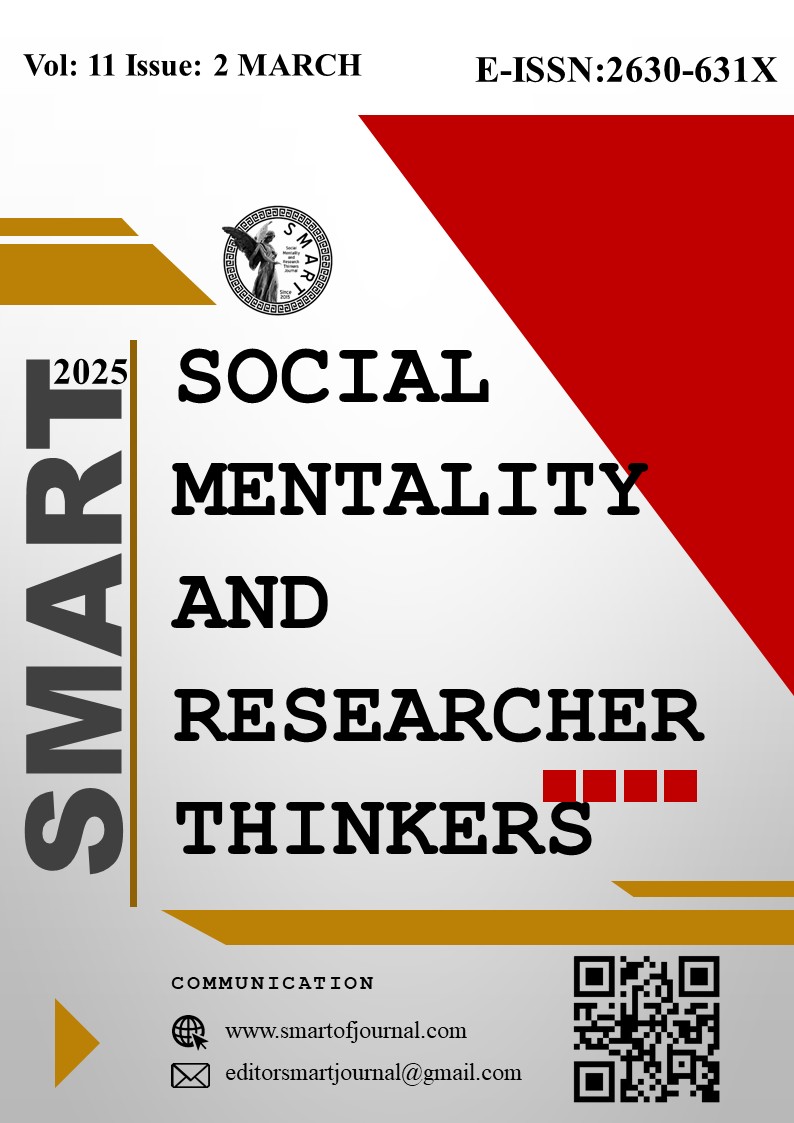Author :
Abstract
Ulusal kimlik, belirli bir ulusal gruba ait olmayı temsil eden zihinsel bir kavramdır. Ulusal kimliğe, bir bireyin kendi grubuna ve diğer gruplara karşı tutumunu gösteren karmaşık bir koşul ve duygu kümesi eşlik eder.
Afganistan'daki ulusal kimlik sorunu her zaman çok hassas bir politik ve kültürel sorun olmuştur çünkü Afganistan'daki dilsel, etnik, kültürel ve dini farklılıklar ve komşu ülkelerin halklarıyla etnik ve kültürel benzerlikler ile Afganistan'daki savaş, çatışma ve yıkım, bu ülkede ulusal kimliğin tam olarak oluşmasını engellemiştir.
Bu çalışmanın amacı, Kabil eğitim öğrencilerinin ulusal kimliğiyle ilgili sosyal ve kültürel faktörleri incelemekti; Bu çalışmada, Giddens ve Stryker gibi sosyal ve kültürel teoriler, üç etnik gruptaki (Peştun, Hazara ve Tacik) öğrencilerin ulusal kimliğini açıklamak için kullanıldı.
Veri toplamak için anket yöntemini kullandık; örneklem büyüklüğü, sistematik rastgele örnekleme yöntemi kullanılarak alınan 372 kişiydi; veri analizi de SPSS yazılımı kullanılarak gerçekleştirildi; Bu çalışmanın bulguları etnik, dinsel, küresel kimlik değişkenleri ile sosyal sermaye, yaşam tarzı ve ulusal kimliğe katılım değişkenleri arasında anlamlı ve pozitif bir ilişki olduğunu göstermektedir; ayrıca çok değişkenli regresyona dayalı olarak sosyal ve katılımcı yaşam tarzı, dinsel kimlik, sosyal sermaye ve cinsiyet değişkenleri bağımlı değişkendeki değişimlerin %10,7’sini açıklamaktadır.
Keywords
Abstract
National identity is a mental concept that represents belonging to a particular national group. National identity is accompanied by a complex set of conditions and feelings that indicate an individual's attitude towards his or her own group and other groups.
The issue of national identity in Afghanistan has always been a very sensitive political and cultural issue because linguistic, ethnic, cultural, and religious differences in Afghanistan and ethnic and cultural similarities with the peoples of neighboring countries, as well as war, conflict, and destruction in Afghanistan, have prevented national identity from being fully formed in this country.
The aim of this study was to examine the social and cultural factors related to the national identity of Kabul education students; In this study, social and cultural theories such as Giddens and Stryker were used to explain the national identity of students in three ethnic groups (Pashtun, Hazara, and Tajik).
We used the survey method to collect data; the sample size was 372 people, which was taken using the systematic random sampling method; data analysis was also carried out using SPSS software; the findings of this study show that there is a significant and positive relationship between the variables of ethnic, religious, global identity and social capital, lifestyle and participation in national identity; In addition, based on multivariate regression, the variables of social and participatory lifestyle, religious identity, social capital, and gender explain 10.7 percent of the changes in the dependent variable.





